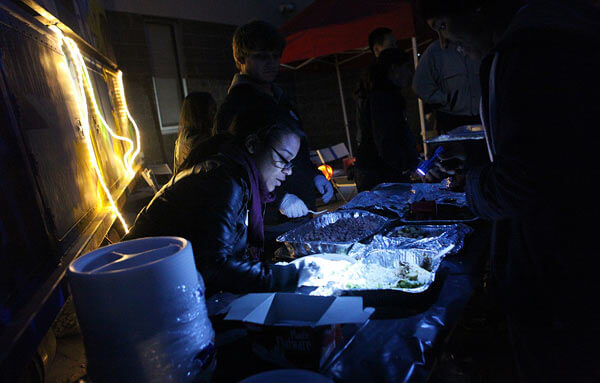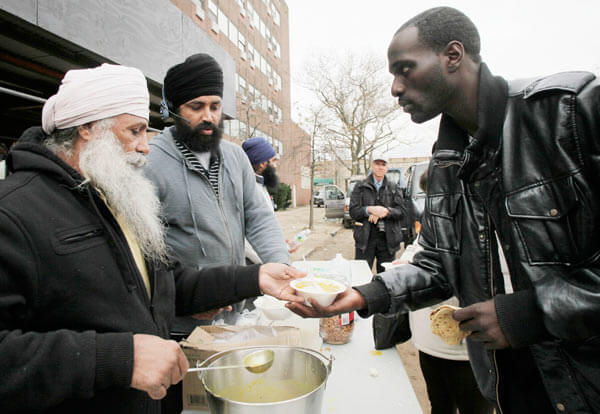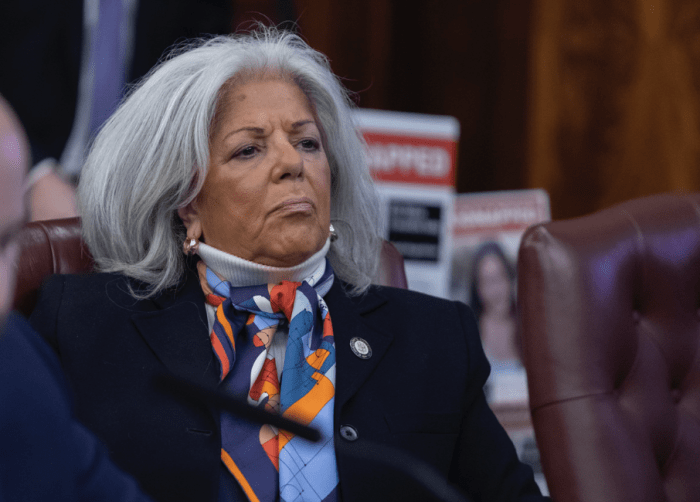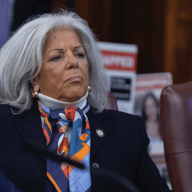By Karen Frantz
Weeks after Hurricane Sandy ravaged the Rockaways and other areas of Queens, it was common to see long lines of people waiting for emergency food: sandwiches, soup, snacks and ready-to-eat meals. For some this was their main or only source of food, with refrigerators without power and grocery stores or bodegas still too damaged to open.
Now five months after the storm, people still need emergency food assistance as they continue on the long road to recovery, and food providers are noticing the numbers remain higher than before the storm.
“When you’re experiencing a crisis, that doesn’t just go away in one month,” said Dominique Jones, the chief programs officer for the Food Bank for New York City.
A number of emergency food providers that are operating soup kitchens or other food services in affected areas such as the Rockaways have told the Food Bank that there has been a slight uptick in demand since the storm, Jones said.
“The Rockaways was an area where there was demonstrated need [for food aid] even before the storm,” Jones said. “I think it’s more pronounced now.”
She said a number of people are struggling with limited resources that are now devoted to rebuilding, paying rent for a temporary home or other needs. In addition, some grocery stores and bodegas still remain closed and transportation has been limited in some areas, cutting off some people’s access to food sources, she said.
Thus, some may forgo food in order to make ends meet, Jones said.
“Food sometimes is the first thing that gets sacrificed,” she said.
In order to bolster emergency food providers such as food pantries and soup kitchens that are helping to fill the gap since the storm, the Mayor’s Fund to Advance New York City recently announced it is providing more than $1.7 million to the NYC Food Bank and City Harvest. Those organizations will allocate the money to organizations providing food on the ground.
“In the weeks and months following the storm, our office has worked in close collaboration with relief organizations who went to great lengths to provide food to those in need,” said city Food Policy Coordinator Kim Kessler. “The Mayor’s Fund grants will support the many providers that sprang into action right after the storm and those that have sustained their efforts through the long term.”
Jones said part of the money is going to organizations to help them with the costs of operating food pantries or soup kitchens and providing services such as enabling people to apply for Supplemental Nutrition Assistance Program benefits or an earned income tax credit. The rest of the money is going to assist organizations expand to meet the rising demand for food aid and services.
Jones said the grant money from the Mayor’s Fund is critical to organizations that provide emergency food assistance.
“We’re now in this space of recovery, but we know on the ground that needs are changing every day,” she said.
Reach reporter Karen Frantz by e-mail at kfrantz@cnglocal.com or by phone at 718-260-4538.




































